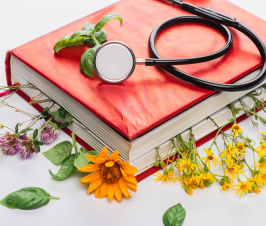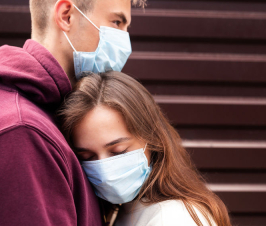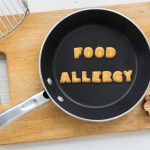Ever since we’ve started practicing physical distancing and following the proper precautionary measures “to flatten the curve,” there has been a lot of focus in the wellness community on the importance of paying attention to our health. Many experts have urged us to make sure we eat well, exercise, and especially to “not panic.”
Pay attention to your health! Easier said than done during a crisis
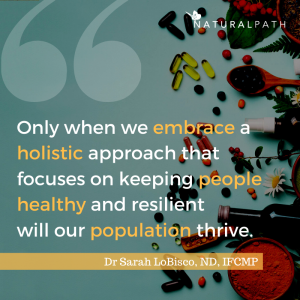
Taking care of ourselves is easier said than done during a crisis. Living in a time of uncertainty and dealing with the unknown takes a lot of faith, grit and cognitive flexibility.
As a naturopathic doctor, my goal has been to provide support during this time by offering resources and inspiration to ignite our innate healing ability.
In this post, I will go beyond tips of exercising at home and zooming-in our friends. Rather, I will discuss the importance of paying attention to our mental health and other determinants of health that are just as imperative, if not more so.
The Importance of Paying Attention to Our Emotional Temperature & Social Determinants of Health
Recently, I highlighted how intricately the mind and body are connected. In a recent publication I discussed that due to this fact, we need to pay as much attention to our emotional temperature as our physical, especially during this time of crisis. This is of utmost priority for those predisposed to mental health issues, because the state of our current world can be even more challenging. Unfortunately, it is often overlooked.
The United States spends the most amount of money of any industrialized world on healthcare, yet we also have the worst outcomes. Now, more than ever, we are witnessing that our world’s focus on sick care has its limits. Only when we embrace a holistic approach that focuses on keeping people healthy and resilient, will our population be able to thrive, not just pray for being able to survive.
In December, a Roundtable on Population Health Improvement workshop was held in New York City at NYU Langone Health. Recently, the National Academies of Sciences, Engineering, and Medicine (NASEM) released the report of the proceedings which focused on reorienting health care and the business sector priorities into health and wealth being. The discussions focused on the excessive amount of money spent on healthcare with such poor outcomes. The panelists explored how social determinants of health, such as food insecurity, economic status, and social support are sorely lacking in our medical system.
These aspects of health are intimately linked to emotional and physical well-being, but often ignored. This is highly unfortunate, as we know that social determinants of health are as important in disease risk, if not more, than lifestyle and other risk indicators. Thankfully, this is beginning to shift and more integrative models, including naturopathic and functional medicine, are reporting on research results that proves their efficacy. The report’s figure is also telling on “how the concept of value in health and business is being shifted.”
Caring for the Caregivers
If we are going to be addressing care more comprehensively, we need to address the providers and caregivers. We also need to take better care of our healthcare workers.
Even before this crisis, burnout was common among physicians. Many reported that administrative tasks, such as excessive paperwork and documentation, was a big factor that robbed them of feeling like they were making a difference with their patients. Burnout is dangerous, it takes our most talented group of healers and transforms their passion into complacency and emotional bluntness. In one post on burnout, the author writes:
During this time of heightened stress and potentially critical conditions experienced by many healthcare professionals, self-care tools are especially important for resilience and coping endurance.1 The American Medical Association (AMA) has updated its suggestions for taking care of caregivers, including institutional policy review, personal protective equipment (PPE) recommendations, and emotional and mental well-being resources.13 The AMA website even offers a free meditation and sleep app for practitioners due to the potential positive impacts of adequate rest and mindfulness practices.13
Unfortunately, we are already seeing signs of post-traumatic disorders and mental health disorders in the healthcare workers on the frontline. Several papers and guidelines and recommendations have been released on the psychological wellbeing of medical staff and suggestions for individuals, teams, and organizational leaders. (source, source)
This has a ripple down effect throughout the hospital organization. The patients themselves may suffer from long-term trauma related to disabilities sustained from the virus, its treatments, and the psychological effects during hospitalization, including separation from loved ones and forced isolation. (source) Finally, patients’ caregivers are also at risk of additional strain and resulting bodily and mood imbalances. (source)
Changing Healthcare
In a recent essay, Dr. Jeffrey Bland discussed five changes we will see in health care after the crisis is over. He emphasizes that global world events, public health, preventative health, medical reimbursement, and environmental awareness will all be redefined. In closing, he states that the silver lining is that people may be asking more questions:
Are people now asking more questions about climate change, pollution, our reliance on ultra-processed foods, our sedentary lifestyles, our excessive alcohol intake, our use of medications and drugs, and our stress — SO MUCH STRESS — from being overscheduled and dependent on smart-devices?..
.. Spaceship Earth keeps spinning. On its beautiful surface, many of us are still in quarantine, awaiting humanity’s next chapter. Let’s write it collectively. Let’s get it right. We’re in this together.
It will begin one person, one doctor, one institution at a time.
We will start to focus more on what people really need, connection, hope, social connection, compassion, and equal access to resources.
Health is not just about exercise and diet. It is not just about managing symptoms and preventing death. It is so much more.
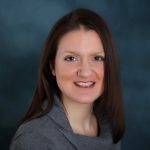
Sarah LoBisco, ND, IFCMP, is a graduate of the University of Bridgeport’s College of Naturopathic Medicine (UBCNM). She is licensed in Vermont as a naturopathic doctor and has received her certification in functional medicine through the Institute of Functional Medicine (IFM), which is accredited by the Accreditation Council for Continuing Medical Education (ACCME). She holds a Bachelor of Psychology from State University of New York at Geneseo and is also certified in Applied Kinesiology. Dr. LoBisco currently incorporates her training in holistic and conventional medicine through writing, researching, and through her independent consulting work with individuals and for companies regarding supplements, nutraceuticals, essential oils, and medical foods. Dr. LoBisco speaks professionally on integrative medical topics and has several journal publications. “Dr. Sarah” also enjoys continuing to educate and empower her readers and clients through her blogs and social media. Her main blog can be found at dr-lobisco.com.



